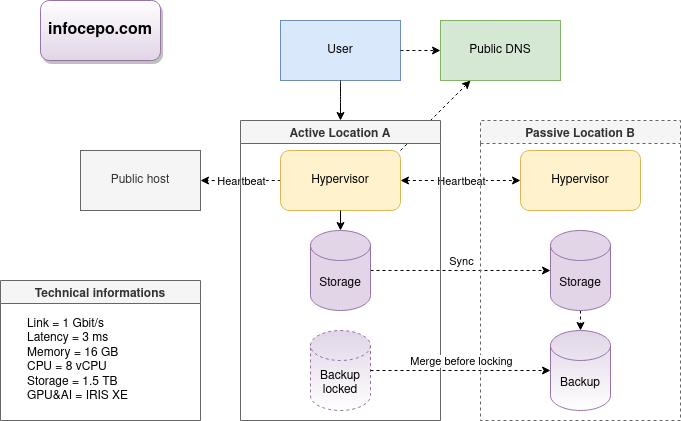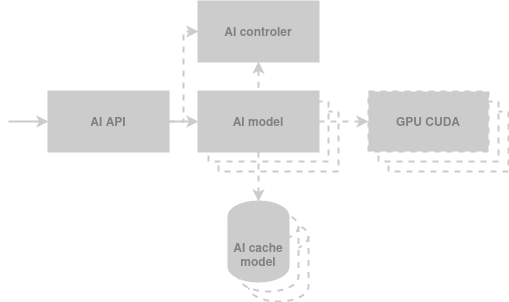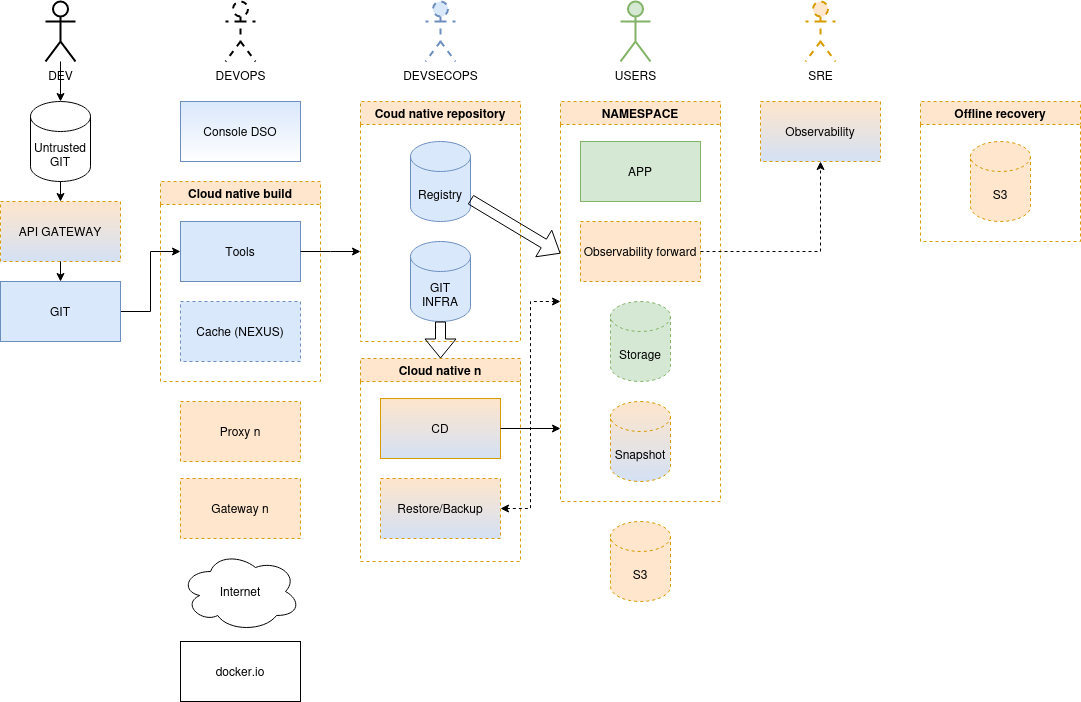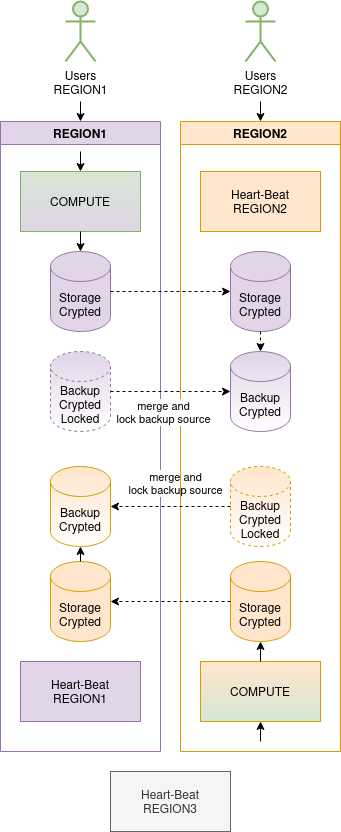Main Page
Jump to navigation
Jump to search
Discover cloud computing on infocepo.com:
- Master cloud infrastructure
- Explore AI
- Compare Kubernetes and AWS
- Advance your IT skills with hands-on labs and open-source software.
Start your journey to expertise.
AI Tools
- ChatGPT4 - public assistant with learning abilities.
- LLM + GPU H100 + Ollama - private assistant and API.
- LANGCHAIN - RAG and automation.
- private summary
DEV
- Models Trending
- Project Trending
- LLM Evaluate
- LLM Ranking
- Embeddings Ranking
- Image Evaluate
- Perplexity AI - R&D
- CogVLM - Private API for multimodal purposes. Usable with RAG.
- Vectors DB Ranking
- Chatchat - private assistant with RAG capabilities but Chinese language.
- NVIDIA H200 - KUBERNETES or HPC clusters for DATASCIENCE.
- NVIDIA 4070 - GPU card for private assistance.
INTERESTING LLMs (updated 15/02/2024)
- Vicuna-33B (private assistant)
- HanNayeoniee/LHK_DPO_v1 (32k, RAG)
- Vicuna-7B (summary)
- cognitivecomputations/dolphin-2.2.1-mistral-7b (processing text)
- HuggingFaceH4/zephyr-7b-beta (efficient)
- FastChat-T5-3B (small devices)
NEWS 22/02/2024
- New LLMs :
- Mistral-new
- HanNayeoniee/LHK_DPO_v1 13b (processing)
- ACCEL : vision IA chip very efficient and powerful.
- IBM NorthPole : an IA chip very efficient and powerful.
TRAINING
Cloud Native Install
CLOUD LAB

Presenting my LAB project.
CLOUD Audit
Created ServerDiff.sh for server audits. Enables configuration drift tracking and environment consistency checks.
CLOUD Migration Example
- 1.5d: Infrastructure audit of 82 services (ServerDiff.sh)
- 1.5d: Create cloud architecture diagram
- 1.5d: Compliance check of 2 clouds (6 hypervisors, 6TB memory)
- 1d: Cloud installations
- .5d: Stability check
| ACTION | RESULT | OK/KO |
| Activate maintenance for n/2-1 nodes or 1 node if 2 nodes. | All resources are started. | |
| Un-maintenance all nodes. Power off n/2-1 nodes or 1 node if 2 nodes, different from the previous test. | All resources are started. | |
| Power off simultaneous all nodes. Power on simultaneous all nodes. | All resources are started. |
- 1.5d: Cloud automation study
- 1.5d: Develop 6 templates (2 clouds, 2 OS, 8 environments, 2 versions)
- 1d: Create migration diagram
- 1.5d: Write 138 lines of migration code (MigrationApp.sh)
- 1.5d: Process stabilization
- 1.5d: Cloud vs old infrastructure benchmark
- .5d: Unavailability time calibration per migration unit
- 5min: Load 82 VMs (env, os, application_code, 2 IP)
Total = 15 man-days
WEB Enhancement
- Formalize infrastructure for flexibility and reduced complexity.
- Utilize customer-location tracking name server like GDNS.
- Use minimal instances with a network load balancer like LVS.
- Compare prices of dynamic computing services, beware of tech lock-in.
- Employ efficient frontend TLS decoder like HAPROXY.
- Opt for fast HTTP cache like VARNISH and Apache Traffic Server for large files.
- Use REVERSE PROXY with TLS decoder like ENVOY for service compatibility.
- Consider serverless service for standard runtimes, mindful of potential incompatibilities.
- Employ load balancing or native services for dynamic computing power.
- Use open source STACKs where possible.
- Employ database caches like MEMCACHED.
- Use queues for long jobs.
- More information at CLOUD WIKIPEDIA and GITHUB.
CLOUD WIKIPEDIA
CLOUD vs HW
| Function | Kubernetes | OpenStack | AWS | Bare-metal | HPC | CRM | oVirt |
|---|---|---|---|---|---|---|---|
| Deployment Tools (Tools used for deployment) |
Helm, YAML, Operator, Ansible, Juju, ArgoCD | Ansible, Packer, Terraform, Juju | Ansible, Terraform, CloudFormation, Juju | Ansible, Shell Scripts | xCAT, Clush | Ansible, Shell Scripts | Ansible, Python, Shell Scripts |
| Bootstrap Method (Initial configuration and setup) |
API | API, PXE | API | PXE, IPMI | PXE, IPMI | PXE, IPMI | PXE, API |
| Router Control (Routing services) |
API (Kube-router) | API (Router/Subnet) | API (Route Table/Subnet) | Linux, OVS, External Hardware | xCAT, External Hardware | Linux, External Hardware | API |
| Firewall Control (Firewall rules and policies) |
Ingress, Egress, Istio, NetworkPolicy | API (Security Groups) | API (Security Group) | Linux Firewall | Linux Firewall | Linux Firewall | API |
| Network Virtualization (VLAN/VxLAN technologies) |
Multiple Options | VPC | VPC | OVS, Linux, External Hardware | xCAT, External Hardware | Linux, External Hardware | API |
| Name Server Control (DNS services) |
CoreDNS | DNS-Nameserver | Amazon Route 53 | GDNS | xCAT | Linux, External Hardware | API, External Hardware |
| Load Balancer (Load balancing options) |
Kube-proxy, LVS (IPVS) | LVS | Network Load Balancer | LVS | SLURM | Ldirectord | N/A |
| Storage Options (Available storage technologies) |
Multiple Options | Swift, Cinder, Nova | S3, EFS, FSx, EBS | Swift, XFS, EXT4, RAID10 | GPFS | SAN | NFS, SAN |
CLOUD providers
CLOUD INTERNET NETWORK
CLOUD NATIVE
- OFFICIAL STACKS
- DevSecOps :
High Availability (HA) with Corosync+Pacemaker
Typical Architecture
- Dual-room.
- IPMI LAN (fencing).
- NTP, DNS+DHCP+PXE+TFTP+HTTP (auto-provisioning), PROXY (updates or internal REPOSITORY).
- Choose 2+ node clusters.
- For 2-node, require COROSYNC 2-node config, 10-second staggered closing for stability. But for better stability choose 3+ nodes architecture.
- Allocate 4GB/base for DB resources. CPU resource requirements generally low.
Typical Service Pattern
- Multipath
- LUN
- LVM (LVM resource)
- FS (FS resource)
- NFS (FS resource)
- User
- IP (IP resource)
- DNS name
- Process (Process resource)
- Listener (Listener resource)





